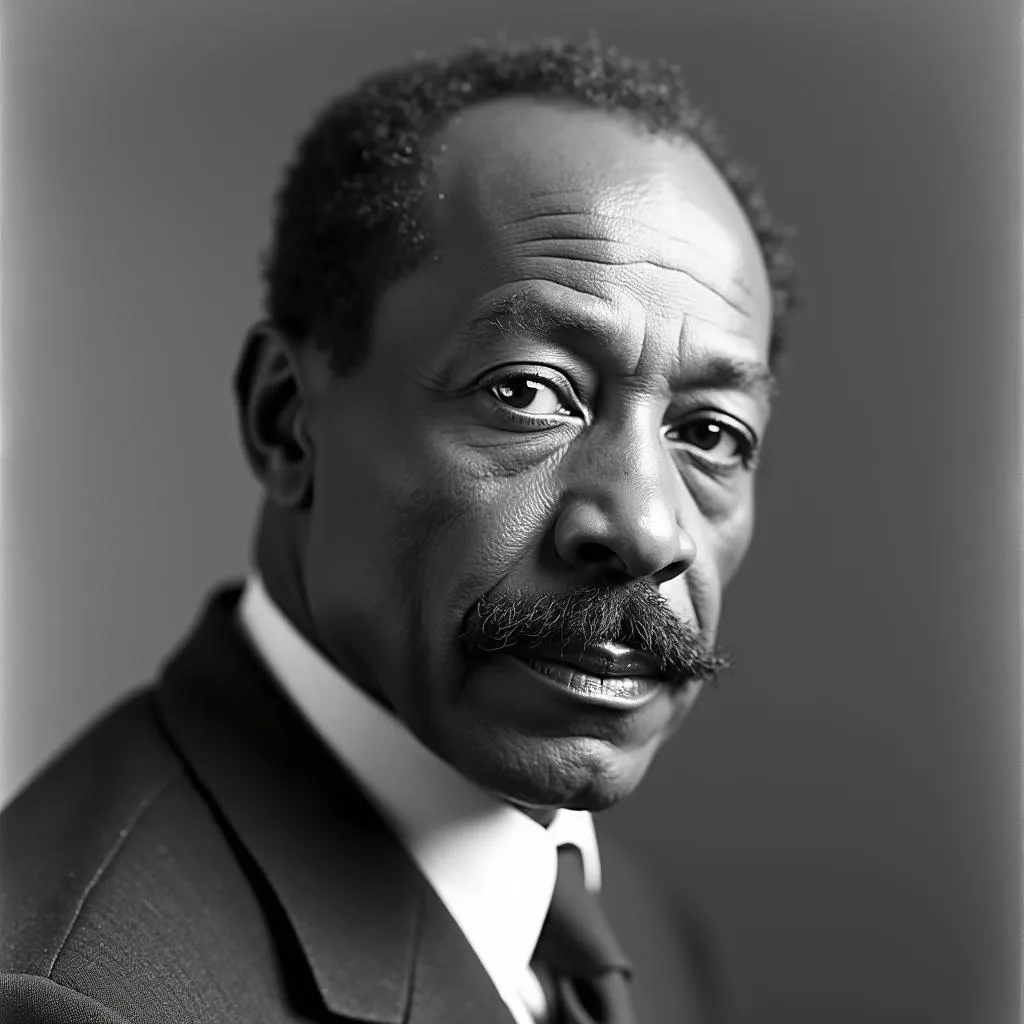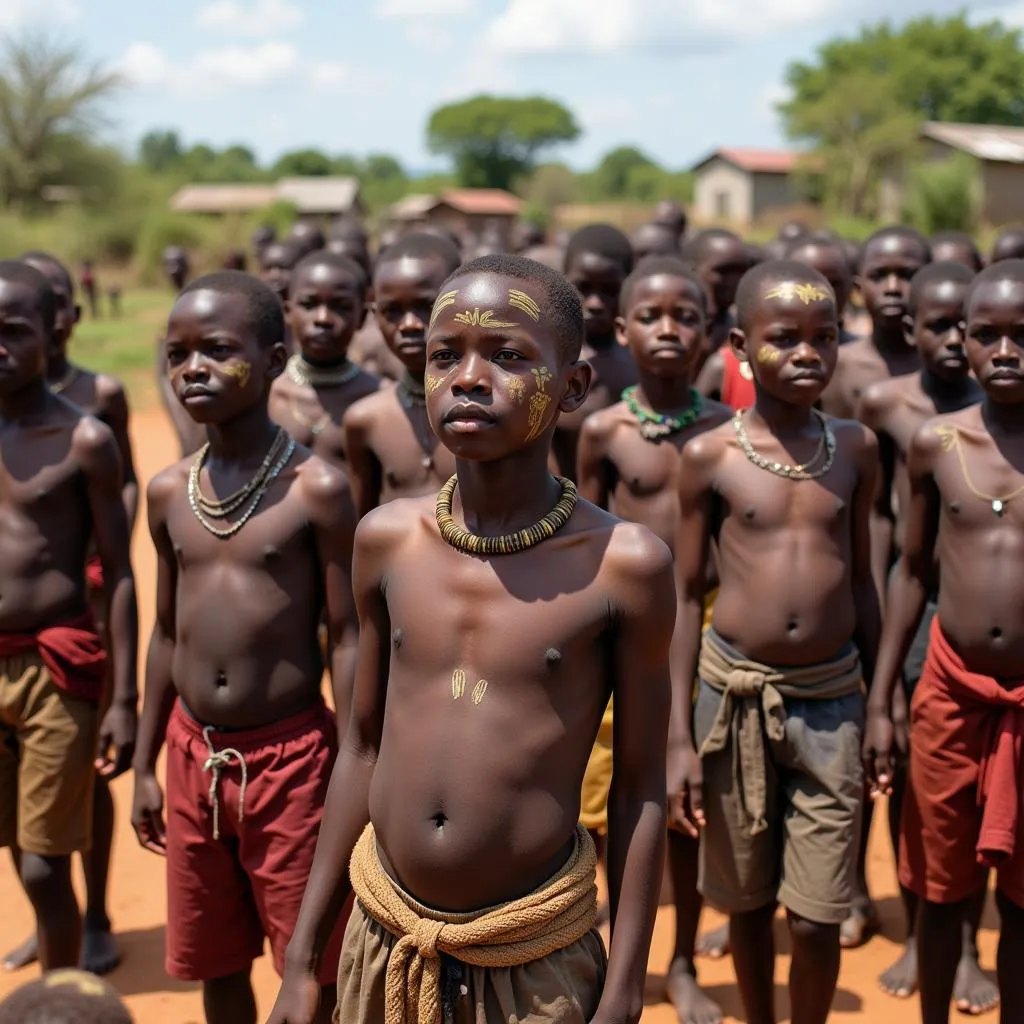African Girls in the Bush: A Glimpse into Their Lives and Culture
African girls growing up in the bush are often the heart and soul of their communities. Their lives are deeply intertwined with nature, tradition, and the challenges of rural living. They play a vital role in the daily routines of their families and villages, carrying forward generations of knowledge and cultural practices.
The Rhythms of Rural Life
The bush holds a mesmerizing rhythm for African girls. Days are filled with the sounds of birdsong, the rustle of leaves, and the laughter of children playing in the sun. Their lives are a tapestry woven with the threads of agriculture, domestic chores, and community rituals.
A Day in the Life
From sunrise to sunset, these girls are busy hands, helping their mothers with household tasks like collecting water, fetching firewood, and preparing meals. They are also active participants in the farming process, learning the delicate art of tending crops, nurturing livestock, and harvesting the bounty of the land.
- Farming: African girls are often the backbone of their families’ agricultural efforts. They learn from a young age the techniques of planting, weeding, and harvesting various crops. This deep connection to the land teaches them patience, resilience, and an appreciation for the cycle of life.
- Domestic Chores: Household chores are a shared responsibility, giving girls a strong sense of community and family. They learn the art of cooking traditional dishes, preserving food for the future, and keeping their homes clean and welcoming.
- Community Activities: Girls often participate in various community gatherings and rituals, carrying on traditions passed down through generations. They learn songs, dances, storytelling, and the art of weaving baskets, mats, and clothing.
Education and Empowerment
Despite the challenges of rural life, many African girls are passionate about education. They are often the driving force behind their families’ desire for a better future.
Schooling and Challenges
Access to quality education can be difficult in the bush. Limited resources, long distances to schools, and financial constraints pose significant obstacles. However, many girls overcome these hurdles, displaying remarkable resilience and a thirst for knowledge.
“Education is our only way out of poverty. It’s the key to a brighter future for us and our families. I know it won’t be easy, but I’m determined to get a good education,” says Amina, a 14-year-old girl from a rural village in Kenya.
Girls’ Empowerment Initiatives
Several initiatives are dedicated to supporting girls in rural areas. These programs focus on improving access to education, empowering girls through leadership training, and providing them with essential life skills.
- The Importance of Mentorship: These programs often connect girls with female mentors who provide guidance, encouragement, and a belief in their potential.
- Promoting Gender Equality: Empowering girls means challenging traditional gender roles and ensuring equal opportunities for them to succeed.
The Importance of Culture and Tradition
African girls in the bush are the guardians of their cultures. They carry within them the rich tapestry of their traditions, from oral storytelling to intricate beadwork and intricate dances.
Maintaining Cultural Heritage
Their lives are intertwined with ancestral wisdom, passed down through generations. They learn the importance of community, respect for elders, and the interconnectedness of nature.
“Our stories are more than just entertainment. They are our history, our values, and our way of life,” says Fatima, a 16-year-old girl from a rural village in Tanzania.
Cultural Expressions
The bush is a canvas for the vibrant cultural expressions of these girls. From colorful clothing and intricate hairstyles to traditional dances and music, they showcase their unique cultural heritage.
The Future of African Girls in the Bush
The future of African girls in the bush is bright, though it requires continued dedication to education, empowerment, and cultural preservation. With the right support and opportunities, they can break down barriers, achieve their dreams, and contribute to the development of their communities.
FAQ
What are the biggest challenges facing African girls in the bush?
The biggest challenges include limited access to quality education, healthcare, and basic necessities like clean water and sanitation. Poverty, gender inequality, and cultural practices can also limit their opportunities.
What are some ways to support African girls in the bush?
You can support them through education initiatives, community development programs, and organizations dedicated to empowering girls. Donating to these organizations or volunteering your time can make a real difference.
How can we promote gender equality in rural communities?
We can promote gender equality by challenging gender stereotypes, empowering girls through education and economic opportunities, and ensuring their voices are heard in decision-making processes.
What are some examples of cultural traditions that African girls in the bush practice?
Some common cultural practices include storytelling, traditional music and dance, beadwork, weaving, and farming techniques. These traditions connect them to their ancestors and contribute to the vibrant tapestry of their culture.
What are some ways to celebrate the resilience and strength of African girls in the bush?
We can celebrate their resilience and strength by amplifying their voices, showcasing their talents and achievements, and supporting their efforts to build a better future for themselves and their communities.


